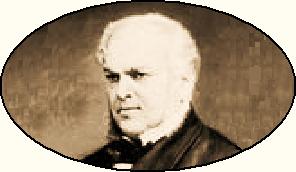Spadina Literary Review — edition 5 page 12
.../
Lastly, the University of Ottawa's Ronald Tranquila, who finds Oliver a subtler writer than most critics suppose, contends that Oliver’s boosterism is merely a mask. What Oliver really subscribes to is the predestined rise-and-fall trajectory of nations and of individuals. Settlers tame the land, then get attacked. Good youths marry, then march to the grave, and so on. There is no up that does not have a down, often in the very same line. The true fate of the rising village, says Tranquila, is clear when Oliver seals his closing encomium to Acadia with a curt downbeat:
So may thy years increase, thy glories rise,
To be the wonder of the Western skies;
And bliss and peace encircle all thy shore,
Till empires rise and sink, on earth, no more.
“Albert and Flora” is a link in the chain. Albert’s courtship of Flora is an up, his desertion a down. Flora (= drama queen) actually demonstrates the rise and fall thesis on a moment to moment basis: she agonizes over Albert, then takes hope as she hears footsteps approach, then wilts on finding they’re not Albert, then fills with rapture as the messenger hands her Albert’s letter, then plummets again on reading Albert's words. Now we see that Oliver’s secret is that nations crumble, the world is bluster, and hope is futile. Downer!
All these rationalizations are very interesting, yet any reader can tell that “Albert and Flora” and “The Rising Village” don’t really need one another. “Albert and Flora” has a life of its own and it is conceivable that at some point it was a stand-alone poem. Let’s check Oliver’s other stand-alone poems to see what clues they offer.

Oliver Goldsmith, grand-nephew of Oliver Goldsmith
After Oliver was transferred to St. John, N.B., in 1833, he re-published “The Rising Village” along with his only other known poems, eighteen in number. They were from his Halifax days. A third of these poems concern vows, usually broken. This choice of theme can hardly be random.
The selection includes a pair of “serenades” where the poet tries to induce ladies (Rosalie in one case, Leila in the other) to join him in a rose-covered bower:
Thy lover waits at this soft hour,
To breathe his vows to thee.
Does something there remind you of Albert?
In another poem, “To Rosina,” the poet, describing himself as “almost broken-hearted,” is bidding farewell to a certain Rosina who is leaving on a journey. The two have vowed not to let distance undermine their affections. But if you imagine I may be unfaithful while you are away, says the poet, banish such thoughts! Don’t insult me by thinking I would sully my name by betraying our love. At face value, he’s trying to reassure Rosina, but his patter is unsettling because he proclaims his fidelity too much and is overly concerned to trumpet his own stolid reputation. Any critic who contends that our Oliver Goldsmith lacks irony has not noticed this poem.